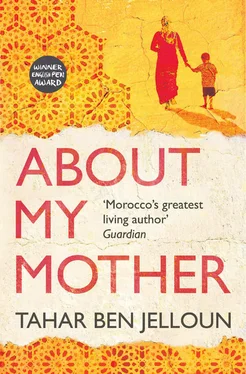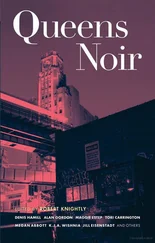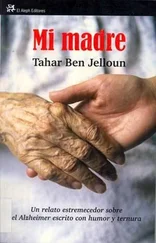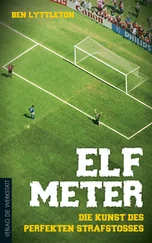— Throw out the old rug from Rabat. It stinks.
— Install a satellite dish so that Rhimou can watch Esmeralda , otherwise she’ll go over to the neighbours’ and your mother doesn’t like it when she goes, even if it’s only next door.
— Talk to the pharmacist and ask her to give me credit.
— And, if it’s not too much to ask, buy me a mobile phone … Yes, I need one, so my many children and grandchildren can call me.
Mother is very busy. She barely notices I’m there. She’s winding a handkerchief around her forefinger, then her thumb. She repeats the same movement dozens of times. She talks, talks to herself, is completely unaware, repeating words back to front. She sings softly to herself, hums, and then stops suddenly. ‘Who’s there? Oh, son, I didn’t see you come in, have you been here long? My eyesight’s getting worse and worse, son. It’s dark all the time. I need light, light’s important. Tell me, on your way home, you didn’t see my father — you know, your grandfather? He was in town, I think he was having lunch with Moulay Ismail, you know, the one with eight daughters who’s always trying to marry them off. Poor man! Eight daughters … Some of them have found a husband. It was arranged. He’s a jeweller, he’s rich. One of his daughters married a cobbler. Imagine — a poor craftsman who mends old babouches . What drudgery! He earns nothing. So his father-in-law offered to open a women’s shoe shop for him. He was overjoyed. But because he worked only with women, he ended up marrying one and imposed her on his household. Moulay Ismail came to my father to complain — you know, your grandfather’s a highly respected man, people come from all over the country to ask his advice. So I heard it all. Poor Ghita — her name’s Ghita, I think — went to Moulay Idriss, to the mausoleum, and asked the great saint for sanctuary. She said she wouldn’t leave the mausoleum until the second wife was repudiated. But we’re in Fez and Islam always favours the man. Apparently the Qur’an says a man must be fair to all his wives. How to be fair? You ask what I’d have done? Well, I wouldn’t have run away to Moulay Idriss. I’m not a bad woman. I wouldn’t have gone and poked the second wife’s eye out, no. I’m not capable of it. But tell me, who are you? And where have my three husbands gone?’
She’s fallen silent. Her gaze is vacant. What is time doing? I’m not certain that it’s passing. It bypasses her as if she no longer mattered. Time straddles this body reduced to so little. She is there, forgotten by time — rooted, stuck in the 1940s, faithful to her ghosts. She takes off her headscarf. Keltum snatches it from her and puts it back on her head, angrily. She tells her off. Mother doesn’t answer, just lets her get on with it.
She asks for a mirror. Keltum hesitates. My mother insists. She looks at herself in a little handbag mirror that’s cracked down the middle. She starts to laugh. ‘Who are these two women leaning over me, watching me? They look alike. They’re crazy — crazy old women. One of them looks like Lalla Bouria, my mother’s mother, who died at a hundred, but what’s she doing here? If she’s dead, she shouldn’t be here. Still I recognise her, it’s definitely her. She was treated like a queen because after my mother, she only had boys, four boys, all of them handsome and intelligent. I don’t know who the other one is. Maybe she’s my mother, but my mother isn’t dead, she just had lunch with us. But whose white, grey, lanky hair is that? She should have kept it under a canary-yellow scarf. I love that colour, it gladdens my heart. Here, take your broken mirror. You’re the one that broke it. They’ve broken everything in this house. They’d break me too, if they could. But here’s my son, watching over everything, and my father comes to see me twice a day too. Who’s living in this mirror? Can you see what I see? It’s strange, he looks like Moulay Ali, my brother. To think everyone told me he was dead when he’s never left the house, he’s just moved, come to find refuge here. His wife doesn’t understand him, she’s stirring up trouble. Look, take this mirror, it’s big enough to hide my little brother! Can you hear, he’s talking to me, he says he’s waiting for our father to arrive so he can come out of hiding. People often say the mirror never lies. It’s true. He’s so handsome, my Moulay Ali! Oh, if only his wife could see him. She tells everyone he’s dead, but my brother’s alive, I have proof. Go and look in the other mirrors, the house is full of them, see if your father — who really is dead and buried — isn’t trying to slip behind the big mirror in the passage, the one he bought from the Rabbi of Tangier. He said it was a mirror that came from afar, from a city on the water, in Europe. Oh, these looking glasses hold so many surprises for us! Now I hear my father’s footsteps, I see he’s holding a child’s hand, but who is the child? Maybe it’s Abdelkrim, the one who was carried off by a high fever. He’s handsome, he was four years old when the angels came to take him. He left … like an angel. But why’s my father bringing him back? The two of them are coming from paradise. Unless the mirrors … the mirrors are playing tricks on me. I’m not crazy, I can see my father and he’s leaning over me, I’m trying to kiss his hand, he pulls it away. You, you can’t see a thing — but open your eyes, son, it’s your grandfather, Moulay Ahmed, the man all Fez adores and worships, he’s never hurt anyone, he hasn’t even had a bad thought about anyone … The mirror will tell you that. But who’s taken my Monica? She’s so pretty, my rag doll, sewn from the Jewish tailor’s scraps. I drew her in my head and Moishe the Jew gave me the wool and some remnants. It’s summer, Fez is hot, but Moishe isn’t hot in his black djellaba. He works without looking up. My mother’s brought him lunch: hardboiled eggs and tomatoes. He doesn’t eat our food, he’s sorry because he can smell the food cooking and he tells Mother he’d have liked to try it but his religion doesn’t allow it. Yesterday he brought me a cracker made with white flour and no salt. I ate it out of curiosity, it had no taste. Moishe is a good mattress-maker. He’s always worked for our family.
‘Where’s my Monica? My doll? That’s odd, I was playing brides with her. It was my little sister who stole her. She’s jealous, she thinks she’s cleverer than me. Too bad. I won’t say a word, I’m going to consult the mirror, at least it never lies. When I look at my reflection, I see another world, strange people moving around me. I don’t know where I am any more. It’s the pills again. Those pills are making me crazy, that’s what Keltum told the doctor the other day. How do I tell her I’m not deranged, I’m on a journey, and sometimes I stop in the city of my childhood and I’m with my parents again, and all my things, my smells. You know, I can’t stand the smell of that donkey, Keltum. She doesn’t hear me, she’s gone out, so I can tell you she’s a donkey. That woman scares me. Where am I? My head’s spinning, I want to sleep, don’t leave me, stay here beside me. Give me your hand …’
And so my mother has only memories. They take up all the space. When I see her, nothing happens. My mother has quietly left. She no longer talks of her funeral because she thinks she’s already dead and buried. She’s already on the other side. It distresses me and I say nothing.
Mother is no longer able to speak: she has difficulty forming her words. I can’t understand what she’s saying. I catch one word and guess the rest. Her face has a strange pallor, her eyes stare at the ceiling. The doctor has removed her dentures. Her mouth’s a hole, her bottom lip swallowed up by the hole. Her hands are very thin. She’s lying on her back, not moving. If anyone touches her, she lets out a whimper. She’s absent or she snores. We have to keep an eye on her blood sugar, her temperature, her perspiration. We have to bathe her glassy eyes.
Читать дальше












